Ever since our last visit to PLNT, a vertical farm based in Belgium, things have changed drastically. Kicking off production at the Southend of Antwerp, right in the harbor, they’ve now moved on up to the Northern part of the city.
Ever since October 2021, PLNT has been initiating its newest farm, the ModuleX by Urban Crop Solutions. Besides that, the management team has undergone some changes too, as Niels is starting his own biological farm in Spain.
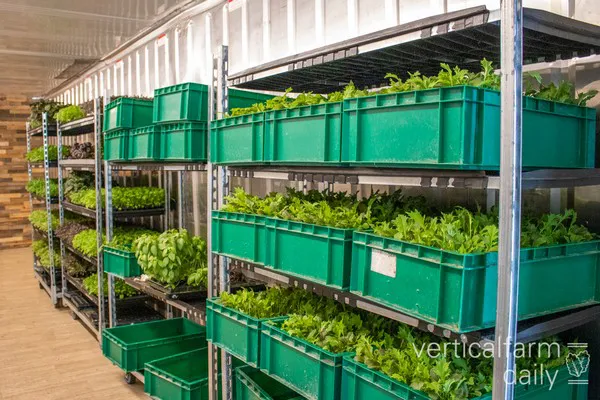
Freshly harvested produce of the day, ready for transport
100% growth
From 4000 plants a week, the team can now produce 10.000 a week. Not only did they upgrade their operations, but also their product offering as PLNT has a variety of 56 products to choose from. Breaking them down to 33 different herbs, 14 types of salad and nine sorts of microgreens.
Hans Snijder, CEO and co-founder, is rather content with the company's current state. Having two FTEs in the team, six+ students distributing the produce by bike, the team is growing steadily.
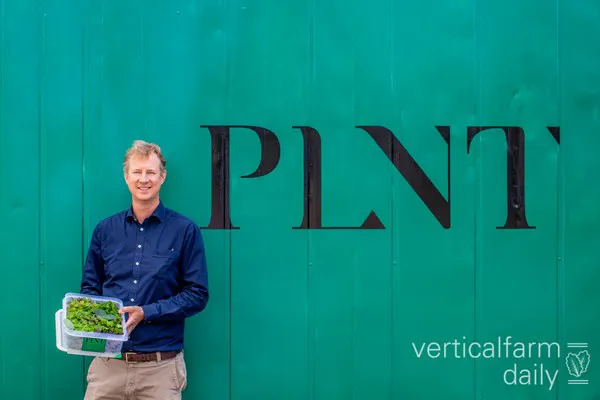
Hans Snijder
“Our original business model pivoted during Covid with a focus on B2C. However, ever since the restrictions have been lifted early this year, we’ve been accelerating our B2B supply. I think there’s a perfect balance between B2B and B2C at this point. Since the restaurants have opened again, we can supply both parties equally as they alternate very well with each other. For instance, as the summer holidays are coming, many individuals will not be ordering but the growing demand of restaurants will balance that out," says Hans.
Hans gives away that PLNT will be expanding its operations throughout Belgium, mainly in the South given the large touristic area they could cover.
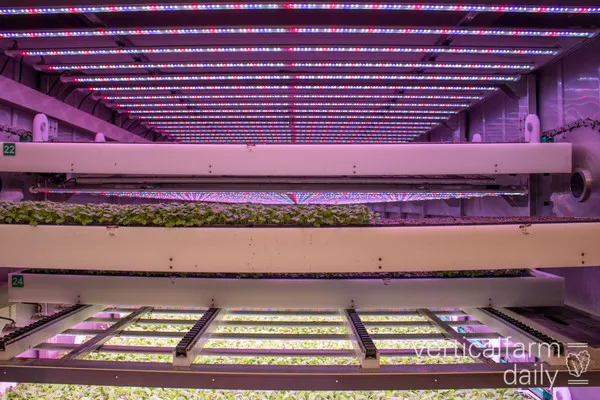
The ModuleX in the works. The benches are easily brought to the front, in order to bring the crops to the harvesting room
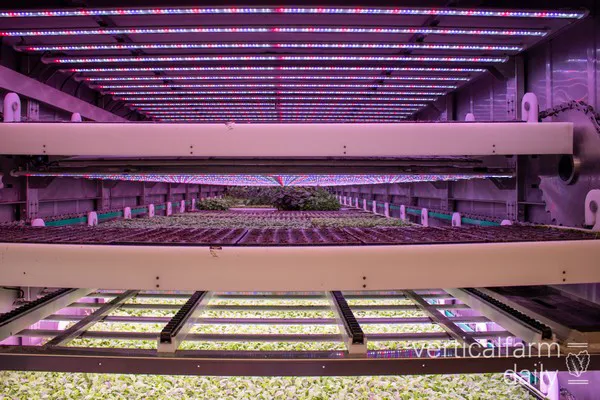
Large part is salad, the rest are specialty crops
85% of the ModuleX is utilized to grow mixed salads, whereas 15% is dedicated to herb- and microgreens produce. “We’ve seen a big growth spurt in salads from the catering industry as ours check three particular qualities they appreciate: sustainability, freshness and shelf life. Besides, a major trigger for many is the locality of the product, grown in the city. To those components, we also certainly try to provide a good service,” Hans affirms.
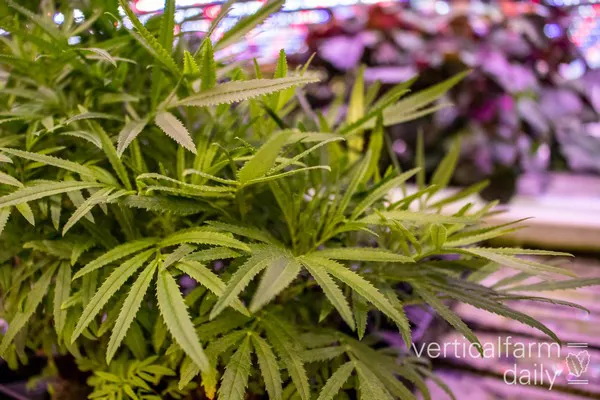
It's not what you think it is...
Although this is a temporary site as well, Hans plans to stay here for a few years until they’ll be expanding to other cities. He’s rather content with the location as they’re super close to restaurants and consumers. During our visit, various customers walked in with their empty boxes to exchange them for a ‘new one’, filled with salads, herbs, or microgreens. There are various packaging formats from small metal boxes for herbs, to large-sized boxes for restaurants or consumers.
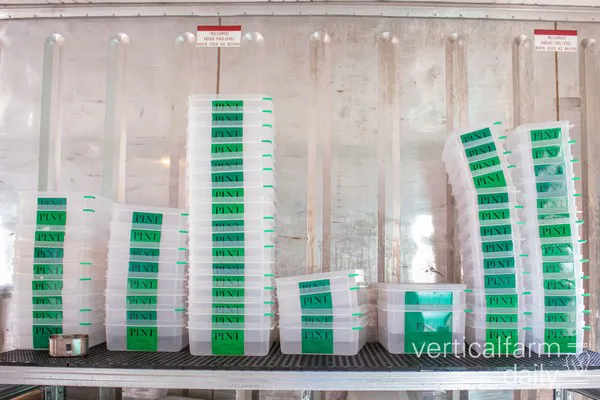
The different packaging options
Increase in capacity and offer
“Since our last farm couldn’t meet the growing product demand, we decided to purchase Urban Crop Solutions’ ModuleX farm with the support of VLIF/ELFPO. Since the device has much more capacity and cultivation surface, we’re much more flexible in our growing cycles. Another huge advantage is that we can order any bench to come to the front via its circulating bench system,” Hans shares.
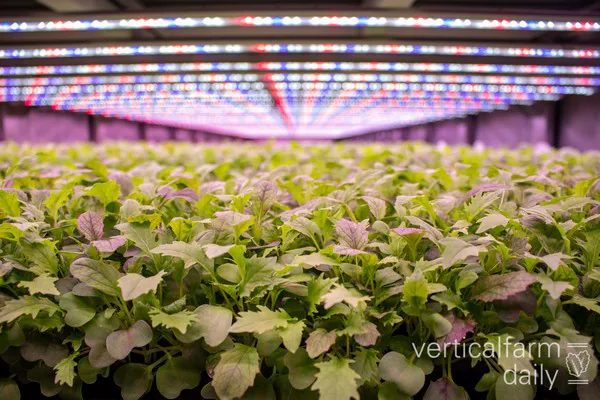
On the other hand, PLNT is always improving the cost of production, now especially by constructing a germination space for its seedlings. That’s for a very specific reason, Hans notes.
“It’s not that the ModuleX fails to germinate young plants, but simply to keep costs as low as possible; especially in the Benelux region.” By efficiently using their space, PLNT germinates its crops in a dedicated facility, whereas the rearing takes place in the ModuleX.
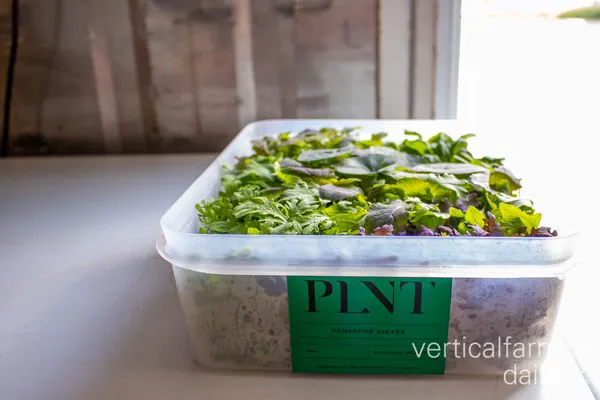
A salad mix ready to be taken home
Especially in Vertical Farming in Belgium, there are three big challenges, Hans emphasizes. Namely, the technological, operational and commercial challenges.
“How are you going to build a company here, as it’s a very capital-intensive business selling, fantastic, but low-value products. That drives us to find a business model that’s viable, and we did. In comparison to last year, we’ve doubled our production as well as our revenue.”
 For more information:
For more information:
Hans Snijder, co-founder and CEO
hans@plnt.be
PLNT
www.plnt.be
